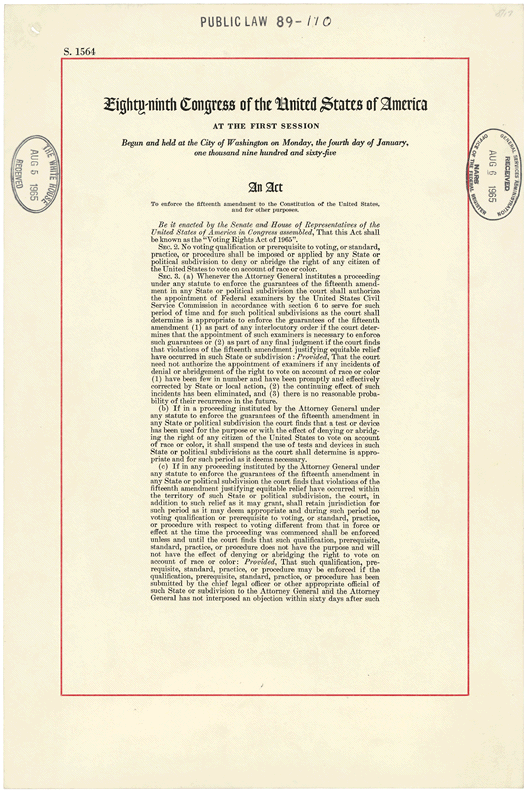Supreme Court Strikes Down Heart of 1965 Voting Rights Act
June 24, 2013
The U.S. Supreme Court, in a five-to-four ruling, today struck down a central provision of the Voting Rights Act of 1965. Section 4 of the act provided a formula for determining which states must submit any changes to existing voting laws to the Justice Department or to a federal court for approval. The Supreme Court ruled that Congress had not provided adequate justification for subjecting nine states, mostly in the South, to federal oversight.
Writing for the majority, Chief Justice John Roberts declared that Section 4 is unconstitutional because the standards by which states are judged are “based on decades-old data and eradicated practices. . . . Nearly 50 years later, things have changed dramatically. In 1965, the states could be divided into two groups: those with a recent history of voting tests and low voter registration and turnout, and those without those characteristics. Congress based its coverage formula on that distinction. Today the nation is no longer divided along those lines, yet the Voting Rights Act continues to treat it as if it were.”

The Voting Rights Act of 1965 protects the voting rights of African Americans and members of other minority groups in the United States. (National Archives)
The Justice Ruth Bader Ginsburg wrote in the dissent: “Congress’s decision to renew the act and keep the coverage formula was an altogether rational means to serve the end of achieving what was once the subject of a dream: the equal citizenship stature of all in our polity, a voice to every voter in our democracy undiluted by race.”
Congress last renewed the law in 2006. In the majority opinion, Roberts noted that Congress remains free to try to impose federal oversight on states where voting rights are at risk, but must base that oversight on contemporary data. Political experts suggest that given the current partisan deadlock in Congress, the imposition of new oversight is highly unlikely.
Additional World Book articles:
- Judicial review
- Poll tax
- Congress of the United States 1965 (a Back in Time article)


